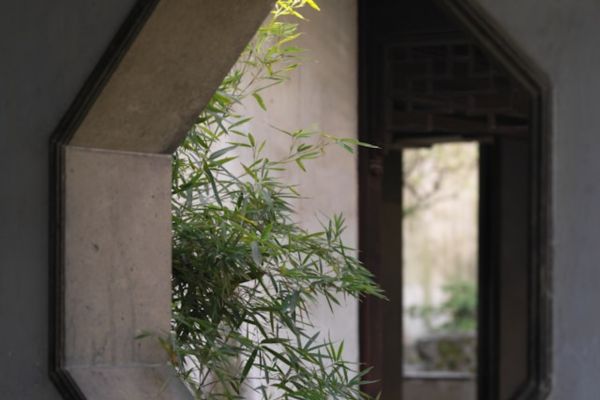
Key takeaways:
- The procuratorate may bring civil public interest litigation against private persons and administrative public interest litigation against the government.
- The civil public interest litigation filed by the procuratorate normally consists of five phases: (i) clue discovery and evaluation; (ii) investigation; (iii) review; (iv) announcement; (v) initiating legal proceedings.
In our previous post, we have introduced that China’s procuratorates are investing more resources into public interest litigation.
So, how will China’s procuratorates conduct the public interest litigation?
We may know better about the work processes from the two recently issued documents of the Supreme People’s Procuratorate(SPP), namely, the “Guidelines for Handling Civil Public Interest Litigation Cases by the Procuratorate (for Trial Implementation)” (檢察機關民事公益訴訟案件辦案指南(試行)) and the “Rules for Handling Public Interest Litigation Cases by the Procuratorate” (人民檢察院公益訴訟辦案規則).
The procuratorate may bring civil public interest litigation against private persons and administrative public interest litigation against the government. Now, we will take civil public interest litigation as an example.
The process of civil public interest litigation filed by the procuratorate normally consists of five phases: (i) clue discovery and evaluation; (ii) investigation; (iii) review; (iv) announcement; (v) initiating legal proceedings.
1. Clue discovery and evaluation
The clues of civil public interest litigation cases are limited to those found by the procuratorate in the performance of its duties.
Generally, the term “performance of duties” includes performing duties such as approving the arrest, examining the prosecution, prosecuting, conducting the adjudication supervision, and public interest supervision.
In addition, given the procuratorate work together with the law enforcement agencies, one can get to know its scope of authority from the clues found in the government law enforcement.
The procuratorate will conduct a preliminary examination and assessment of the case clues from three aspects: (i) the authenticity of the clues; (ii)the feasibility of filing public interest litigation; and (iii) the possible social risks.
The clues will then be transferred to the clues management and filing system.
After that, the procuratorate will further evaluate the clues. If the following two regulations are met, the procuratorate should decide to register the case for investigation:
(1) The social and public interests have been damaged;
(2) The illegal acts that damage public interests fall under the scope of public interest litigation that can be lodged by the procuratorate.
2. Investigation
The procuratorate’s investigation mainly focuses on the following five aspects:
(1) The basic information of the offender;
(2) The illegal act committed by the offender;
(3) The damage to public interests;
(3) The consequential damage;
(4) The causal relation between the illegal act and the damage;
(5) The subjective fault of the offender;
(6) Whether there are relevant facts of exemption or mitigation of responsibility applicable to the offender.
The investigation and evidence collection methods of the procuratorate include the following:
(1) Consult relevant administrative law enforcement files and materials;
(2) Question the offender and witnesses;
(3) Collect evidence, including physical evidence, documentary evidence, audio-visual materials, and electronic evidence;
(4) Consult relevant professionals and experts;
(5) Conduct appraisal, evaluation, and audit;
(6) Conduct on-site inspection.
During the investigation, the procuratorate may mobilize the judicial police to assist in the investigation in case of any obstruction to the investigation after risk assessment or on-site observation.
3. Review
The procuratorate shall review the case and make a decision based on the investigation results. There are two possible decisions:
(1) Terminate the review, that is, no public interest litigation will be filed;
(2) Decide to file public interest litigation.
The procuratorate will terminate the review and no longer file public interest litigation if:
(1) There is no illegal act;
(2) The indemnitee and the indemnitor of the ecological environment damage case have reached an indemnification agreement through consultation;
(3) The close relatives of heroes and/or martyrs do not agree with the procuratorate to file public interest litigation;
(4) Other qualified subjects have brought a lawsuit with the court on their own;
(5) The public interests have been effectively protected;
(6) Other circumstances.
4. Announcement
Before filing civil public interest litigation, the procuratorate shall make an announcement on a nationwide media to inform the relevant subjects that it is about to file civil public interest litigation.
The purpose of the announcement is to remind the right holder that he/she can communicate with the offender or file a lawsuit on his/her own. During the announcement period, the procuratorate can continue the investigation.
During the continuous investigation, if the procuratorate finds that the conditions for review termination and non-filing of public interest litigation are met, it will terminate the review.
The procuratorate may decide to file public interest litigation if it finds that the public interests are still under damage and the following conditions are met:
(1) For cases about compensation for ecological environment damage, the right holder fails to initiate the compensation procedure, or fails to bring a lawsuit after consultation fails;
(2) There is no qualified subject, or the qualified subject does not bring a lawsuit after the expiration of the announcement;
(3) There are no close relatives of heroes and/or martyrs, or such close relatives do not bring a lawsuit.
5. Initiating legal proceedings
If the procuratorate decides to file public interest litigation, it will submit the public interest litigation indictment and relevant evidence materials to the court as a public interest litigation prosecutor.
When the court is in session, the procuratorate will appoint a prosecutor to appear in court, and the assistant prosecutor may assist the prosecutor during the case hearing.
If specialized or technical issues are involved, the procuratorate may appoint or hire persons with expertise to assist the prosecutor during the case hearing.
Photo by Filippo Cesarini on Unsplash
Contributors: Guodong Du 杜國棟 , Meng Yu 余萌









